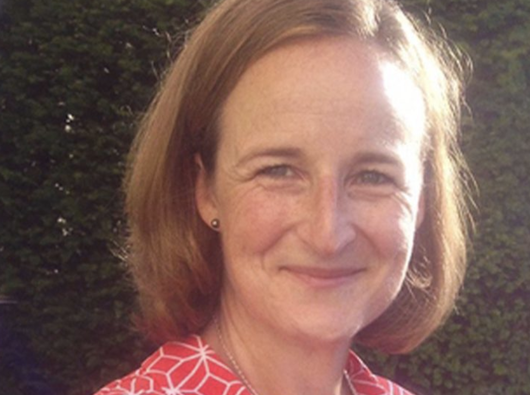Looking after yourself with myelofibrosis (MF)
Explore simple things you can do for yourself, alongside any treatment your hospital recommends, to look after your physical and mental health.
Staying hydrated
It’s good for everyone to drink plenty of fluids, but it’s particularly important if you have a high blood counts.
The NHS’s Eat Well Guide recommends drinking 6 to 8 glasses of water, or other low fat and low sugar drinks, every day. This includes tea and coffee (as long as the milk is low fat and you don’t add sugar).
Ask your hospital team to advise how much fluid you should be aiming to drink each day.
Stopping smoking
It’s a good idea for everyone to try to stop smoking, but it’s particularly important for people with MF and other blood cancers.
Smoking can cause a range of health issues and could worsen the effects of the MF and other conditions you may have. So it’s important for smokers with MF to cut down as much as they can, and ideally stop.
This may not be easy, particularly if you’re feeling shocked and anxious about your diagnosis, but there are services that can help. The NHS offers advice and support to stop smoking, including ways to quit, a free app, and information on local services.
Keeping active
It’s important to stay as active as you can, even if the MF or your treatment is making you feel tired. Exercise can help to boost your mood as well your overall fitness – and you don’t have to do anything high impact. Gentle exercise such as yoga can be effective and also help with other MF symptoms.
Choose something that you like doing or can incorporate easily into your daily routine, like gardening, walking or following an exercise video at home.
See our ideas about how to stay active safely when you have blood cancer.
Managing fatigue
Fatigue is a type of extreme tiredness that doesn’t always get better with rest and can come on suddenly. Fatigue can make you feel mentally as well physically exhausted. You can’t always tell when it’s going to come on and it doesn’t relate directly to your blood counts.
Exercise might feel like the last thing you want to do, but there’s evidence that activity actually helps with fatigue. Many people with blood cancer agree that gentle exercise such as walking can make a difference to how they feel. They also say they learn to pace themselves and not take on too much.
Read our information about managing fatigue.
"Fatigue really is different to tiredness. Tiredness creeps up on you and comes on gradually. Fatigue is like a wall that just suddenly smacks you in the face."
Carina, living with blood cancer since 2017
Read Carina's story about coping with fatigue.

Managing itching
Itching can be symptom of MF. The medical name for this is pruritis.
Itching can come and go, and can range from mild to very severe, although there’s usually nothing visible on the skin. Talk to your hospital team as they can prescribe medicines and skin creams that may help.
Visit our online community forum to connect with other people and find out what works for them.
Eating healthily
It’s important to eat well and enjoy what you eat. Unless your hospital team gives you special instructions, it’s best to follow general advice on eating a healthy, balanced diet. Stick with food safety guidelines to avoid infections from things you eat and drink.
We have more information about eating well with blood cancer.
Looking after your mental health
It’s not an easy thing to hear that you have blood cancer. And it’s not unusual for an MF diagnosis to affect your mental health as much as your physical health. You may find your mood goes up and down, and you feel different things at different times.
This is a normal part of living with blood cancer. One simple thing you can do if you’re feeling low, or angry, or sad, or just numb, is connect with other people who understand what you’re going through. You can do that on our online community forum – you don’t have to share your own experiences if you don’t want to, but it may help just to read how other people with blood cancer are feeling, and what helps.
There are other ways to support your mental health after diagnosis, including counselling and other psychological therapies which may be available through the NHS. Read our information on looking after your mental health.
"In time (and believe me, it will take time), all those many unnerving components – the blood tests, the symptoms, the taking of medication – will eventually just become part of your routine, things as regular as brushing your teeth."
David, living with MF since 2021
Read David's story about coming to terms with his diagnosis.

Getting vaccinated
Because your immune system may be weakened by the MF, it’s important to get all the recommended vaccinations.
People with blood cancer shouldn’t have live vaccines, but luckily very few vaccines are live. None of the covid and seasonal flu vaccinations used in the UK are live, so they are safe for you to have.
If you are unsure, ask your GP or hospital team which vaccinations you should have. We have more information about vaccinations.
You may also want to read our page about managing your risk of infection, as people with MF may be more likely to get bugs like colds, flu and covid-19.
Managing other health issues
If you other health conditions alongside MF, these will need to be carefully managed. In particular, conditions that may also cause heart attack or stroke (such as diabetes, high cholesterol or high blood pressure) need to be well controlled.
While your haematologist will monitor and treat the MF, it’s usually your GP who is responsible for other conditions, with specialist advice if needed.
It’s important that you have regular check-ups with your GP to check your blood pressure, cholesterol level and monitor any diabetes. Take any medication as directed and follow the advice your doctors give you.

Living well
Practical tips and real stories to help you with everyday life
